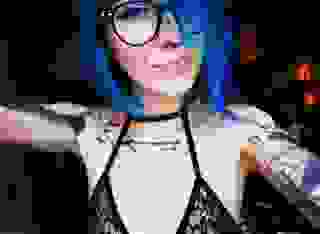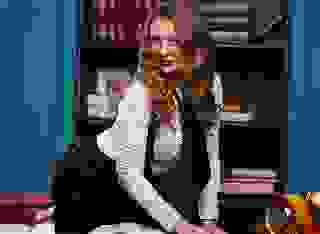Note: You can change font size, font face, and turn on dark mode by clicking the "A" icon tab in the Story Info Box.
You can temporarily switch back to a Classic Literotica® experience during our ongoing public Beta testing. Please consider leaving feedback on issues you experience or suggest improvements.
Click hereChapter Two
Introspections
What I didn't know was that if I didn't stand with my back to the wall, Hollywood people would unscrew my ass and sell it down the river.
Joseph Wambaugh
For as far back as she could remember, Jennifer Collins had wanted to be a cop. When she was a little kid just starting out in school, when she fell ill, as happens from time to time, what she remembered most was sitting in the living room and watching TV shows like CHIPs and Adam 12 among the early morning repeats. Her parents, of course, hated these shows, maybe almost as much as they hated cops. Her father was a lawyer, and while he made a decent enough living off of all the damage that followed in cops' wakes -- and, it seemed, wherever they went -- all he had to say about them around the dinner table wasn't fit for conversation with kids present. Not that that stopped him.
Whether or not her mother agreed with him wasn't really something that ever concerned Jennifer Collins. When she stayed home, which wasn't really all that often, her mother didn't bother to change the channel -- so an unfettered Jennifer watched all her favorite shows. Then one morning she watched a new show called Emergency!, about the adventures of a new type of fireman working in the LAFD. Paramedics. They were called paramedics, and as far as Jennifer Collins was concerned these new firemen were cooler than cool. They were like battlefield medics, only the war they were fighting was happening right outside her front door.
The Collins household wasn't, however, really all that close to the action. Not really. Her father's place, a little ranch style house with thick cedar shakes on the roof, was located on the sliver of land located between Loyola Marymount to the north and Los Angeles International Airport immediately to the south, and Jennifer's unobstructed bedroom windows looked directly over the airplanes landing and taking-off all day and all night long. When the DC10s and L-1011s started their engines they seemed to let slip a long, low moaning sound as they came smoking to life, and those moans mingled with the pulsing roars of jets reversing thrust just before the next waiting airliner turned onto one of the runways to begin it's loud sprint back into the clouds.
Jennifer's first school was located just a few blocks away from that house, just across West Manchester over on Emerson Avenue, a street just like any one of the other tree lined streets close to the college, and there was a Safeway grocery store not too far away from her school, another store just like any one of a number of such stores on the West Side. Her school was one of dozens built just after the war, a little Bauhaus inspired thing that looked like a series of brick boxes that had been stacked one on top of another -- until some precocious toddler had come along and knocked them all down, scattering little brick boxes along the edge of Emerson Avenue. And there were days when she felt like one of those bricks, too.
Her father's house had reddish bricks on the outer walls, but only up to about waist high. The upper reaches were planked and painted sage green, and there were fake white shutters flanking the aluminum framed windows. The grass was green on her father's lawn and he was fastidious about such things. He mowed the grass once a week, every Saturday morning, and then he edges along the sidewalks and driveway -- meticulously. When she was old enough, Jennifer began helping her father, falling more and more, or perhaps deeper and deeper, into the rhythm of his life.
One Halloween, when her mother was helping get her costume situated, Jennifer's father put a sheet over his body and, pretending to be a ghost, he jumped out in front of the little girl -- shouting 'Boo!' and almost scaring the shit out of her. In the end his big 'Boo!' made her laugh and laugh -- and in point of fact more than she had ever laughed before -- but it made her father laugh, too. And it was a funny moment between them because after that she increasingly became 'Daddy's little girl,' and Halloween became 'their time together.' And after a few years he started calling his daughter his little Boo Angel, and soon she looked forward to Halloween more than any other time of the year.
Because love is funny like that. You never know when or how, or even why...
She started middle school at another Bauhaus brickyard not all that far away from the elementary school she'd attended, this school named for Orville Wright, which made a certain kind of sense given that Los Angeles International was located just a few blocks away. Still, she thought the name sounded kind of stupid. "Really," she used to say to her friends, "who names a kid Orville?"
And...maybe she had a point. Yet, come to think of it, and, as her father often loudly proclaimed around the dinner table, the teachers at Orville Wright Middle School weren't exactly churning out test pilots and rocket scientists, were they?
And while Jennifer wasn't exactly a rocket scientist, she wasn't a slow learner, either. She hated math but loved science, a rather basic conundrum that might have bothered her teachers -- had they cared. She disliked social studies, too, yet she loved English, because, as it happened, she liked to write -- and so she did whenever she could. Her writing skills followed her along to high school then on to Cal State Long Beach, where she thought she might major in Creative Writing. She took a couple of screenwriting classes just for fun, but in the end Jennifer decided to opt into the school's Criminal Justice Program -- after another formative experience altered the course of her life.
One of her creative writing teachers had been a cop up in LA, and she dropped by during office hours from time to time -- just to shoot the breeze more than anything else -- and he talked to her about all those old television shows she had watched when she stayed home on sick days. He talked to her about his own experience of being a cop, too. And these conversations hit a raw spot, or an exposed nerve, you might say, and one thing led to another. She talked to people in the criminal justice department about career options, then one night she went on a ride along.
In South Central.
And the experience shattered her previous way of looking at the world, the colloquially sheltered Weltanschauung of her father's house. Jennifer was naturally a very empathetic person, and because of her experience of the people she met that night, the literal experience of South Central rocked her world. Because she'd never seen houses like those she saw between Slauson and Vermont -- because white girls like her just didn't go over there. Because it was too dangerous for white girls over there around all those -- black people. Yet even more to the point, going on that ride along was an act of open rebellion. That night was Jennifer's open declaration of independence -- from her father -- because by that time she just didn't agree with his take on law enforcement, or even with his take on the people who lived in South Central.
So...she graduated from Cal State Long Beach and by the time she applied to the LAPD her mother wasn't all that surprised, though her father was, not surprisingly, beyond furious -- indeed, he instead went ballistic. In fact, he took her application as a personal betrayal and didn't speak to her for weeks, then months, and when she was accepted, making it into the January academy -- the LAPD Academy located up in the hills that made up Elysian Park -- her father was so so angry Jennifer thought he might not ever speak to her again. He in fact talked of disinheriting her, and then came talk of wiping the slate clean, of perhaps maybe even starting a whole new family, and maybe even finding with a new wife -- because something had obviously gone terribly wrong with this life...!
But because Jennifer had taken a couple of psych classes she thought she saw her father's tantrums as symptoms of something much deeper. Like...Middle Aged Crazy, maybe? She met him for lunch a couple of times a few months later and noticed a lot of things that simply didn't feel quite right to her, like some physiological symptoms just weren't adding up, so she told her mother about her concerns. Yet her mother was now very deep into the whole five o'clocktail thing and had become, in just four short years, a real non-functioning alcoholic. Her mother, in short, simply didn't care anymore what her father did, or even with whom he did it.
There was no love left in the little house over by the airport, Jennifer realized. There was no soul. And how could her mother survive living like this, she wondered? Still, something didn't feel quite right with her father, so despite her own misgivings she called the family's doctor and made an appointment for her father.
It took only a couple of lab tests to confirm the cancer diagnosis, and it turned out that her father's pancreatic cancer was so advanced that even a modest intervention was discouraged. In fact, he passed three weeks later, leaving Jennifer in a complete stay of shock, and after that her mother fell into the bottle and hardly ever came up for air.
Yet because her mother had never worked a day in her life, and therefore had not one marketable skill, Jennifer knew that real trouble loomed. Worse still, her mother had not the slightest inclination to do anything other than to sit around the house drinking all day, and at fifty five years old that was not a prescription for enduring happiness. With that in mind, Jennifer moved back into the house by the airport and started taking care of her mother. At least she did until academy began, because both their lives changed after Jennifer first drove up to Elysian Park.
Because that other way of life was suddenly and completely over and done with, and for Jennifer the real work began. But then the real emotional torture began, too, as the essential nihilism of police work began to take root. The endless double-binds of that life grabbed her by the throat and soon made it hard to breathe. And she knew she was neglecting her mother, and that she was going to have to if she was going to, somehow, make a life of her own. But, let's face it, when Jennifer first arrived at the Academy in Elysian Park, that was also her first real encounter with what was soon to become the central dilemma of her life. The one real fact of life she had ignored up 'til then, and that had, perhaps, been the one central fact of her mother's life, as well.
Because Jennifer was the odd man out in Elysian Park -- from day one. Literally. Because all her instructors were men, and all but one other classmate was male, too, and to make matters worse the other female in her class was a dedicated, hard-core lesbian. Instructors berated the girls, they were belittled horribly in front of their peers, and when those tactics didn't get them to resign, their instructors began to systematically abuse them, both physically and emotionally. All under the guise of toughening them up to meet the demands that would be placed on them once they hit the street.
Yet Jennifer Collins knew the score. She'd heard all about this shit from her teachers in Long Beach, so she was ready for the assault, even for the duration and intensity of their torture. Because her instructors really weren't all that clever, and because she realized there was a kernel of truth behind their motivations to destroy her. Female officers were still not at all the norm around LA, not even in the 90s, and in a peculiar way she knew her instructors really were looking out for her. Just like they were looking out for every other cop out there on the street, because the street really didn't care if you were male or female or if your skin was black or white or any shade in between. No, Jennifer Collins understood that the only thing the street cared about was strength, and weakness. Mental strength, physical strength, and, perhaps a good measure of moral integrity, too; these were the only things that stood between cops on the beat and uncertain death, because every street in Los Angeles was full of death. Every street was an ecosystem unto itself, with apex predators lurking around every corner.
And the weak cops, she understood not long after she hit the street with a field training officer, were like the rest of the little fish around the reef. They depended on the big sharks to leave them alone, and the weakest cops did this by taking payoffs, by being paid to look the other way at just the necessary time of day, or night. Her first FTO was a decent enough cop, and he pointed out the weaker cops and even the various ways they were paid off.
"Why don't you say something?" Jennifer asked, shocked as reality bit once again.
"You keep your mouth shut and you might just live long enough to understand all the reasons why," her FTO replied.
And she listened to him, because she wasn't naive. Because she knew the score, at least she thought she did, but more importantly she knew this old cop did. Because he had been around long enough to have seen reality. To know what reality looks like when you walk around a corner and run into it, face to face. Reality, she soon learned, exists within the split second when reality chooses to reveal itself. Everything else is pure guesswork...and preparation -- for that moment.
So...she started keeping notes. Then she started to really think about all the things she saw, and experienced, out there on the mean streets of LA. And, as it happened, it turned out she was a very good observer of the human condition, and, as it happened, she still enjoyed writing. For whatever reason you want to imagine...call it boredom or call it simple human need...she began writing.
+++++
There's a long history of cops in the LAPD who take up pen and paper to record their experiences, and some notable fiction has sprung from the pages crafted by these cops. Television series have been based on these works, and more than a few movies, too. Powerful stuff, really, about the human condition, and about the costs paid to police the fringes of this so-called condition. And while the LAPD doesn't exactly frown on the activities of these writers, there are rules. Like -- you write on you own dime. If you write fiction it must be easily identifiable as such. You do not discredit the department in general nor anyone who has or who is actively serving on the streets. Jennifer Collins, by and large, agreed with these rules, and she even understood the institutional necessity that had made these rules and procedures a practical necessity, so she wrote -- quietly, unobtrusively -- in her old bedroom. The same bedroom she had grown up in, the same little room in the same little house over by the airport. Her father's house, where -- if she listened hard enough, she could still just barely hear the faraway laughter of a little Boo Angel running into the open arms of a smiling father.
She'd been with the department and on the street for about five years when she started her very first short story, yet when she finished this effort she filed it away under 'Too Embarrassing' and gave up on the whole idea of writing -- for a few months, anyway. When she next wrote another story she soon realized the waiting page was kind of like a blank canvas, a hidden place where she could paint in all the broad, dark strokes she found on the street, but then she found that the colors she rendered were more like a release of dark energy, the kind of catharsis she might have expected to find deep inside her nightmares. When she finally understood the nature of this budding relationship she began to spend more time with pen in hand, committing to the page all the feelings she couldn't express elsewhere. Feelings she'd dared not express to her fellow cops.
So, at some point along this razor thin edge, she realized that almost everything she was writing was in direct contravention of every rule and procedure the department had put in place to prevent being discredited by disgruntled insiders. Yet, she said to herself, I'm not disgruntled. I love the department. I always have, and I always will. It's just a few bad apples giving the department a bad name. So she kept writing, yet she soon decided she wouldn't even try to get her works published. Not now, she told herself, and maybe not ever.
And then one night she came home from her shift, and this was after about ten years on the force, and she found her mother in the kitchen, lying face down in a pool of blood and vomit. She called for paramedics and they pronounced yet another woman, her mother, dead at the scene -- just one of dozens who passed in the night. The medical examiner's report concluded her mother had suffered a stroke and had, more than likely, hit her head when she collapsed and fell to the floor, hitting her head on a countertop on the way down; she might otherwise have survived the stroke as the clot was small and the area of the brain affected was relatively insignificant, but it didn't matter. Her mother fell and was gone and so the woman who carried and brought her into this world died alone, face down in her own vomit. Gee, sorry Mom.
And that's what Jennifer Collins understood in the aftermath: her mother had died face down in a pool of vomit, drowning in bourbon infused bile. She died alone, perhaps like any one of the other hundred and ten human beings who had died that night -- in The City of Angels -- only her mother died from neglect. After she picked up her mother's ashes from the funeral home, and after she mixed them with her father's ashes, she drove her parents up to the top of the Angeles Crest Highway and held them before the wind's embrace -- and just like, with the passing of a gust, she was alone, really alone in her little corner of the universe. Soon the only human companionship she could find was either in the briefing room at Rampart or on the pages she created at home on her days off.
Yet, another one of those inflection points happened after she spread her parents to the wind. When she got back to her house later that evening she went into the living room and turned on the the big stereo system. It had been one of her father's prized possessions, she realized, like just about every other item inside this living mausoleum, but -- like everything else her father had bought, the hi-fi was perfect. A big old Marantz receiver hooked up to some truly massive JBL speakers, he'd probably bought the damn thing so he could drown out the airliners coming and going -- except the houses here by the airport had been built so close together that playing music that loud would've earned a visit from the local patrolman.
She didn't bother changing the station that night, and because he never changed the station maybe she left it tuned where it was so she could listen to the same music her father had. Sinatra. Dean Martin. Perry Como, voices from another time. Voices out of place and out of time but who nevertheless remained ready to fill in the empty shadows in all the lonely hearts out there. Music was a connection to that past and she missed it so much that night it hurt, and when the music came on she sat in the darkness and watched the never-ending string of lights as airliners, strung out like infinite pearls in the night, lined up to land. Soon each light resolved into wings and bodies full of people expecting to run into a happy embrace, then the jet's engines roared for awhile as the jet slowed to turn off the runway -- but then perhaps ten seconds later another jet would line up and streak down runway, leaping into the sky at the last second, still more people in an endless rush to open arms and a loving embrace, each new set of roaring machinery blending into the one before, and the next one after that to the one just before.








